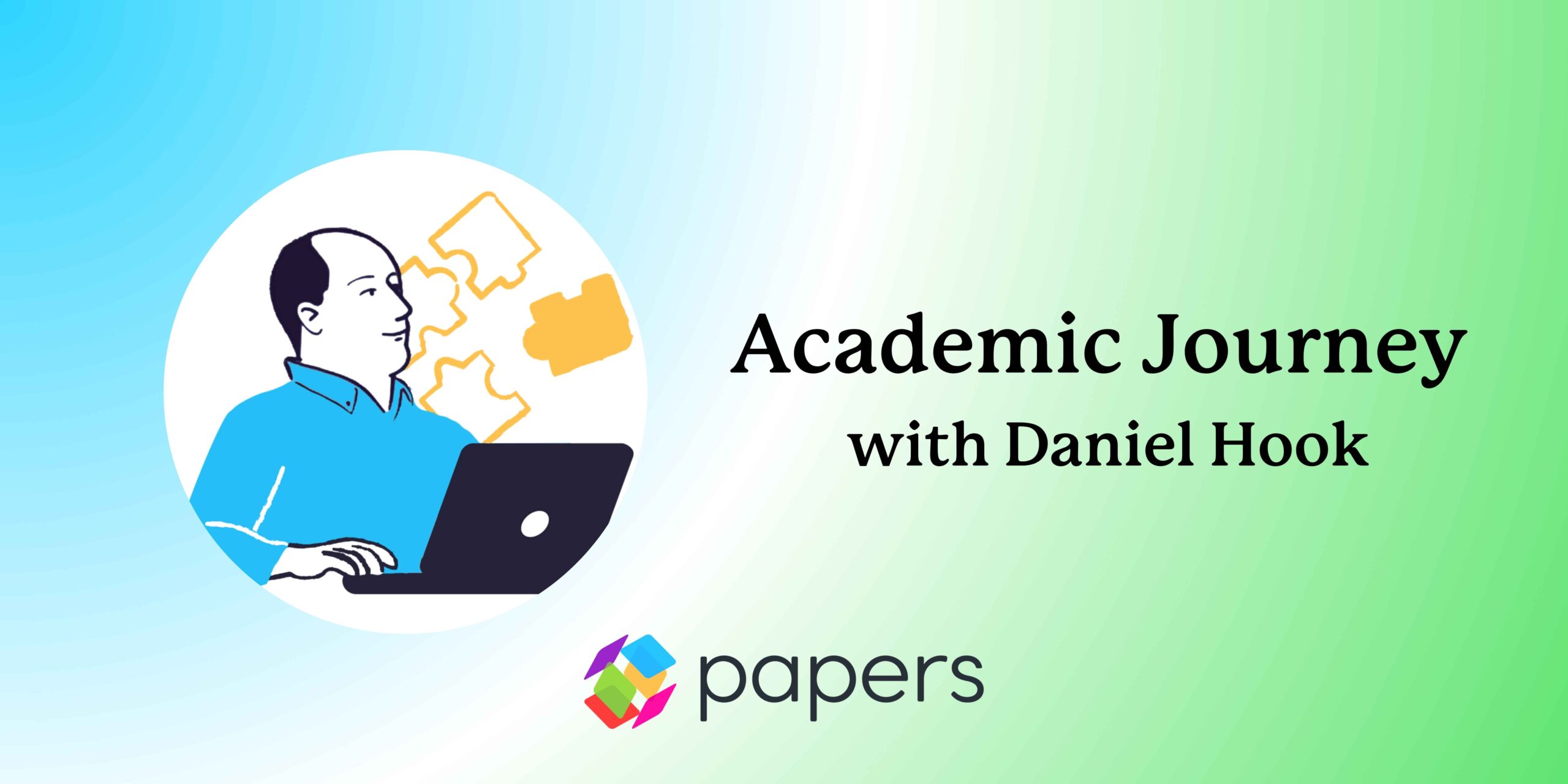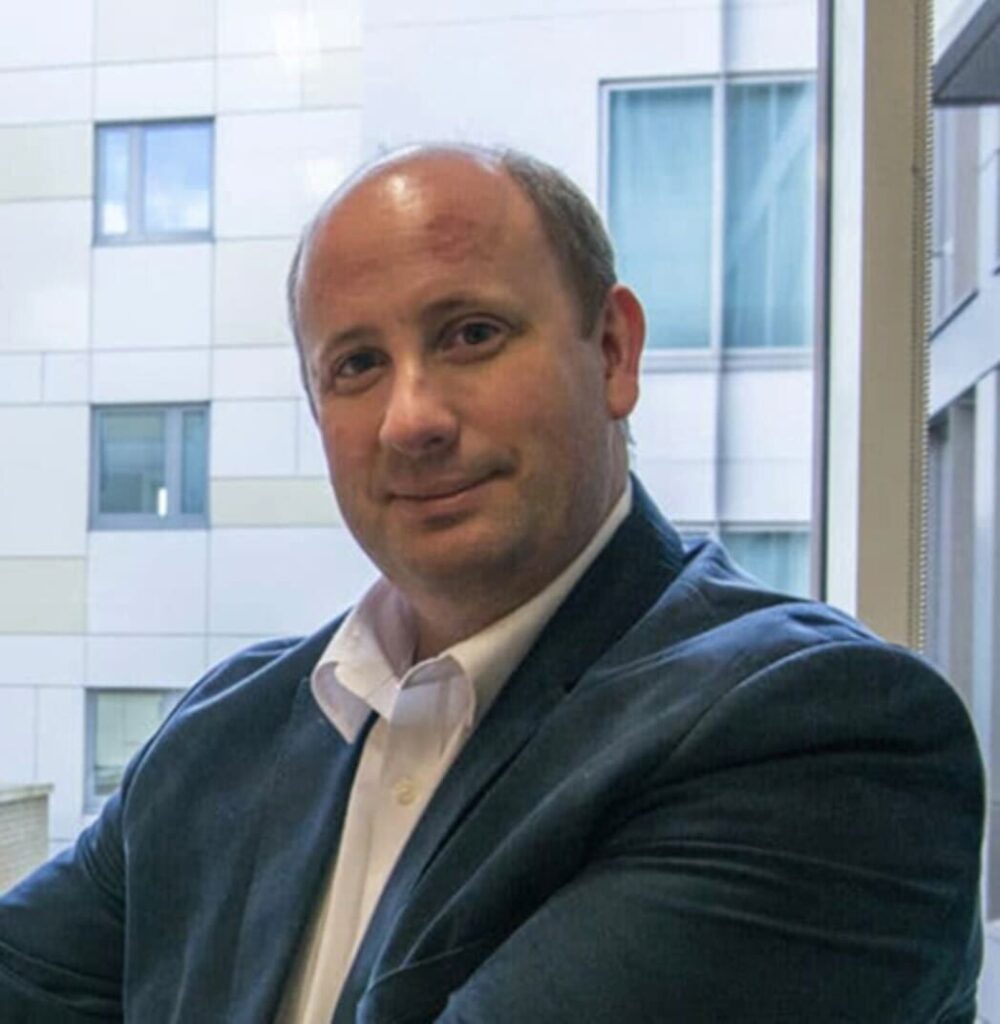Academic Journey: Daniel Hook

With the start of a new school year underway, we got to reminiscing about our own experiences as students, researchers, and faculty. This sparked the idea for a new series where we spoke with a variety of people in ReadCube and Digital Science who have backgrounds in academia to explore their experiences, their career path so far, and their hopes for the future of research and science. We hope you enjoy, and perhaps experience a spark of inspiration.
What is your name, where are you from, and what did you study?
I’m Daniel Hook, from London, UK. At the start of my career, I spent 11 years studying Physics, starting with a Bachelors’ degree in Physics with Theoretical Physics, then a Masters’ degree in “Quantum Fields and Fundamental Forces”, and finally a PhD in quantum statistical mechanics. More recently, I studied for an MBA.
What do you do now? What has your career path looked like?
For the last 8 years, I have been CEO of Digital Science. Prior to my current role I spent 2 years running the Research Metrics division at Digital Science. I had come to Digital Science via an investment in Symplectic, the company that I co-founded with my PhD office mates in 2003. Digital Science made an investment in Symplectic in late 2010 and we were (and are) a very collaborative team so we quickly ended up working with other groups that our new investor had brought on board. That led naturally to a role in Digital Science in 2013.

Did you expect to end up where you are now when you were a student?
No! I knew that I wanted to study for a PhD and that my interest was theoretical physics. Beyond that, I fully expected to attempt to pursue an academic career. There really were, at that time, two main routes after a theoretical physics PhD – one is to become a theoretical physics researcher; the other is to go into quantitative finance. However, theoretical physics, like so many other disciplines, is highly competitive and it became clear that my research area was unlikely to yield post-doc positions. Each of us who started Symplectic had decided that we specifically didn’t want to enter banking, but we were given a chance to write some software for one of the faculties at our university and we thought that might be a good opportunity to do something that was neither theoretical physics nor banking. It turned out to be a good choice as just a couple of years later the banking crisis caused many ex-PhD colleagues who had gone into the banking world to lose their jobs.
What do you wish you knew when you were a student?
Perhaps a controversial answer here. I was a very diligent student in the sense that attended all the lectures, even when the material wasn’t always well taught. In retrospect, I probably should have had the confidence to study some subjects on my own when I felt that the lecturer wasn’t doing such a good job. Recall sometimes being quite frustrated by the pace and capability of some lecturers and I would have been better off taking that time to work on problem sets and teach myself some areas of the curriculum – when you’re 19 you don’t always realise that’s an option. I think that modern online learning environments used in combination with in-person lectures can do a much better job of catering to the different speed and ways in which people learn.
What advice do you have for students right now?
Passing the exams is important but you’re not at university only to pass exams. It is a time in your life when your time is your own and when you are relatively unfettered by responsibilities. While I wouldn’t advocate wasting too much time (wasting a little is ok!) – it is a time in your life when you can explore options, learn who you are, explore interests and see which interests develop into passions. You should aim to leave university with at least one passion that you can carry through your life.
What are you most excited about for the future of science or research in general?
We are clearly just at the beginning of an exponential revolution in research. The nature and rate at which research was done in the 300 or so years following the first formal research communications in the 1660s changed very little. But, with the expansion of the community has come an increase in data volumes, which has fundamentally changed the tools that we need to do research, the ways that we communicate research and the positive difference that research can have on the world. If we consider the change that research has brought us – technologies, medicines, cultural innovations – we all live different and (mostly) better lives than we could have 50 years ago. And we are only just at the beginning of this revolution: As LLMs and AIs start to augment our research capabilities we will be able to access and solve even harder problems than we do today, which will in turn lead to even more impressive and faster developments.
Do you have advice you would like to share with the Papers community? If so, please drop a comment below.